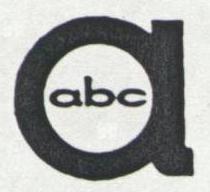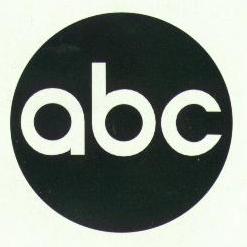



|
Quartet of Radio Nets a Boon To Stature of ABC Radio News At 10:55 p.m. on New Year's Eve, among the items broadcast on ABC Radio News was this headline: "A sound is retired." The sound was the signature of ABC Radio News, which was being heard across the land at that hour for the last time. As reporter Don Baker explained, the retirement of the ABC News sound also meant the end of the single ABC Radio network, which the next day would be replaced by four networks individually tailored for different station formats. The following morning, four new sounds were introduced to the American airwaves: a crisp, rapid-pace for the Contemporary Network; a brisk, feature-oriented Entertainment Network; an authoritative news service via the Information Network; and concise and measured reporting on the FM Network. In one key respect, the new networks represent a kind of breakthrough for ABC Radio News. The Information Network broadcasts 10 minutes of news on the hour, followed by a three-and-a-half minute feature called "Information Reports" during most hours. This service, supplemented by "News Around the World" at 8 a.m. and "World Wrap-up" at 10 p.m. (each 15 minutes), constitutes a showcase for the efforts of ABC Radio News that never before existed. Formerly, ABC;s news at :55 was abbreviated and delivered at too hurried a pace. Now, the Information Network service is directly competitive with CBS Radio News, since it is not compromised to serve the needs of rock stations. In terms of content, it represents a significant step forward for ABC Radio News. The Info Net features forceful and articulate young reporters such as Steve Bell, Phil Lenhart and Mort Crim. "News Around the World" with Bell as anchorman sounds better than ever before. Newscasts employ more and lengthier voice reports from correspondents, and the staff of overseas stringers is being expanded for the operation. As on the other weblets, commercials are still few and far between, with a plethora of pub-service announcements filling the slack. The listener with a serious interest in current affairs will probably find the Info Network entirely sufficient as radio news goes. The other three networks offer different approaches to the task of making news palatable to stations with a limited news appetite. The FM Network presents lucid wrapups at :15 past. News at :55 on the Contemporary Network surpasses in quality what most rock stations without a network provide their listeners. The Entertainment Network's approach is the least successful. Its stress on people and places in the news does add an element of so-called "human interest" to its presentation. But, the phrasing is at times awkward and simplistic, and the lack of depth is notable, with Joseph C. Harsch's incisive commentaries a conspicuous exception. The Entertainment and Contemporary weblets employ brief actualities featuring clips of newsmakers or the sounds of newsmaking events. The Contemporary News is less complete than the old ABC :55 news. The FM Network eschews actualities obtained by beeperphone or overseas circuit because of their poor quality. The latter policy may be a misguided effort to achieve relative "high fidelity" at the sacrifice of comprehensive on-the-scene reports. "American Contemporary Reports," the Contemporary web's three-and-a-half minute series, presents pop music stars interviewed by hosts including several WABC disk jockeys. Most of the interviews caught tended toward banality. However, the Pickle Brothers' "news of the day in review" aired at 4:25 offers amusing satirical vignettes. The Entertainment Network, despite its title, features little entertainment, except for the venerable "Breakfast Club." Just as some syndicated talk shows have enjoyed considerable success in recent years, the Entertainment Network might profitably expand its inventory to include conversation shows of broad national appeal. Operation of four radio networks on a single broadcast line entails a lack of flexibility to cover special events. For example, on Thursday (4), Secretary of State Rusk's 3 p.m. news conference was not broadcast live by ABC, since it would have disrupted the rotating newscast schedule for the four weblets. By contrast, NBC Radio carried the Rusk press briefing, joining it in progress following the 3 p.m. news, while in New York, WINS, Group W's all-news outlet, carried Rusk in full from beginning to end. Summing up, the Information Network offers complete hour-by-hour coverage of national and world news with a staff well selected to provide that coverage. The other three webs are not as comprehensive and do not pretend to be, although the service they provide in most instances will improve the calibre of the news product on the stations for which they are intended |